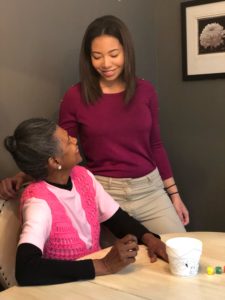Honoring Your Parents
Show Honor to Your Mother and Father
Taking good care of your elderly parents will take a lot of time and strength. Make caring for them the main concern, don’t be hesitant to ask for support. Make more time to communicate. You may not always be ready for an unexpected change of circumstances. Maybe think about getting a part-time caretaker. Everyone’s position and what they can do is different. One thing you should always make sure to do is to honor your parents. What are the best ways for you to do that?
Help Support Material Needs
Honoring your parents might include helping with their material needs. For instance, food, clothing, and shelter. Some may be capable of providing for themselves, which is wonderful. If ever it should come to a point where they are no longer able to take care of their material needs, honor your parents by doing what you can to meet their needs. Not everyone can help others materially. But just doing your best to care for what you can for your parents is greatly appreciated. They do not expect you to do more than what you are capable of.
Acknowledge Emotional Needs
Providing for your parents means more than just providing for their material needs. All of us have emotional needs. Show your gratefulness for all the hard work, love, and care they’ve put into raising you to be the person you are today. Realize that like everyone else, older ones need love and suppo rt. We should look for ways to help conserve the dignity of our maturing parents. For example, being a good listener will keep us from insisting on doing things our way without considering their opinions. They need to feel appreciated, and that their lives are still worth living. Show your parents you love them. If they aren’t living with you, remember that your keeping in contact can mean a lot to them. Write them a letter, give them a call, or stop by for a visit. This will bring them so much happiness.
rt. We should look for ways to help conserve the dignity of our maturing parents. For example, being a good listener will keep us from insisting on doing things our way without considering their opinions. They need to feel appreciated, and that their lives are still worth living. Show your parents you love them. If they aren’t living with you, remember that your keeping in contact can mean a lot to them. Write them a letter, give them a call, or stop by for a visit. This will bring them so much happiness.
Be Compassionate
As the years move on, older people may find things to be more difficult than they used to be. They may need help. At times, though out of concern, children can become protective and controlling. This can cause parents to resist what they view as efforts to rob them of their independence. They are adults with a life’s worth of experience and wisdom from looking after and making decisions for themselves. Their individuality may center on their role as parents and adults. Parents who feel they have to give up control of their lives to their children could become depressed. It would be nice to let your parents make their own choices when possible. Don’t make decisions about what is best for your parents without speaking to them first. You want them to feel included in the decisions made for them. If they no longer have as many freedoms, you should let them keep the ones they do still have.
Keep a Good Mindset
At times a challenge that adult children have in honoring their parents involves the personal connection they had with their parents in the past. Maybe they were tough, cold or unloving. You might still hold on to anger from the frustration or hurt they’ve caused. How can you overcome these feelings? Try to understand that maybe they had a rough upbringing and have emotional wounds that have caused them to be who they are. Focus on the good in them. Maybe your father never showed you much affection, but you know that he always did what he could to provide for the family’s needs. That is something you can be thankful for. Always show compassion, kindness, mildness, and patience. Continue loving and putting up with one another.

